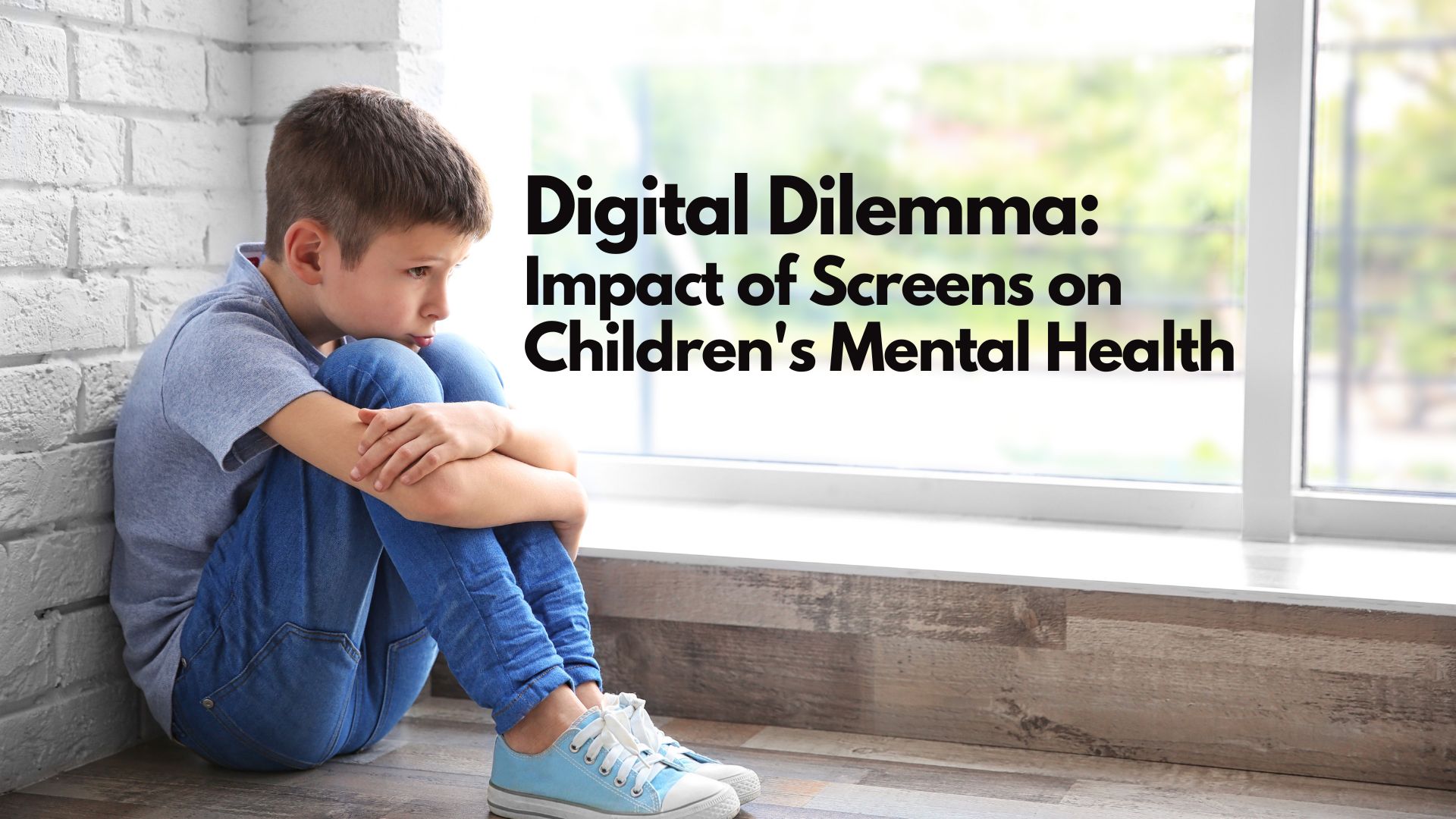Welcome to this special preview of our article, “Digital Dilemma: Impact of Screens on Children’s Mental Health” This sneak peek offers a glimpse into the wealth of insights and tips awaiting you in the full version.
Did you know that the average child spends over 7 hours on screens each day? This May, as we mark Mental Health Awareness Month, it’s a great opportunity to reflect on the integral role that digital devices play in our children’s lives. Whether it’s for learning, playing, or socializing, screens are ever-present. But as screen time increases, so does our concern for its effects on the mental health of our young ones.
The reality is stark: children are spending more time than ever before glued to screens, and the implications of this are not yet fully understood. However, what is clear is that prolonged screen time can affect everything from sleep patterns and attention spans to emotional stability and social skills.
This blog aims to shed light on these issues, offering insights and practical tips on how to manage and mitigate the impact of screen time. We will explore how screens influence children’s psychological and social behaviors and how we can promote a healthier, more balanced approach.
Our commitment is to support you in navigating this challenging digital landscape with your child’s best interests at heart. Join us as we delve into effective strategies that foster safer screen use and stronger, happier children.
Understanding Screen Time
Screen time includes the use of any electronic screens, including TVs, computers, tablets, and smartphones. Whether it’s watching a show, scrolling through social media, playing video games, or completing school assignments, these activities all contribute to the total screen time your child accumulates throughout the day.
-
What Counts as Screen Time?
-
Television: Watching TV shows, movies, or streaming other video content.
-
Computers and Tablets: Using these devices for both educational purposes, such as homework, and for leisure, such as gaming or browsing the internet.
-
Smartphones: Time spent texting, playing games, using apps, or scrolling through social media.
-
-
Current Trends in Screen Time Among Children and Teens
Statistics show that children’s screen time has been on the rise, especially with the increased availability of portable digital devices:-
Young Children (Ages 2-5): On average, young children spend about 2 to 4 hours on screens each day.
-
Older Children (Ages 6-12): Screen time increases for school-aged children, averaging about 4 to 6 hours daily.
-
Teenagers (Ages 13-18): Teens spend approximately 7 hours on screens, not including time spent for academic purposes.
-
These trends indicate a significant portion of children’s days are spent interacting with digital devices, which underscores the importance of establishing healthy habits around screen use. It’s essential for parents to be aware of these statistics as they set boundaries and guide their children toward a balanced digital lifestyle.
Psychological Impact of Screens
-
The Link Between Screen Time and ADHD
Excessive screen time can notably impact your child’s attention span and may contribute to symptoms of Attention Deficit Hyperactivity Disorder (ADHD). Frequent shifts in focus demanded by fast-paced digital media can hinder the development of deep concentration skills necessary for non-digital tasks, such as reading and schoolwork. Although screen time is not the sole cause of ADHD, it can exacerbate symptoms in predisposed individuals.
-
How Does Screen Time Affect Sleep?
The blue light emitted by screens can significantly disrupt your child’s sleep cycle. This exposure delays the release of melatonin, the hormone that signals our bodies it’s time to sleep, thereby shifting the internal clock that guides our circadian rhythm. Particularly when devices are used close to bedtime, children may struggle to fall asleep and experience poorer sleep quality. This can lead to various issues such as daytime sleepiness, reduced academic performance, and mood swings.
-
The Emotional Costs: Anxiety and Depression
Screen time, especially on social media, can significantly affect children’s mental health, contributing to anxiety and depression. Social platforms often showcase idealized versions of life, leading to harmful social comparisons and feelings of inadequacy among youth. Moreover, while digital interactions can offer a sense of connectivity, they lack the emotional depth of face-to-face communications and can increase feelings of isolation.
Preview Wrap-Up
This preview emphasizes on the impact of screens on children’s mental health. To read the entire article and keep learning about making your family’s online experience safer, we encourage you to join our Cyber Safety Plus Membership Program. This comprehensive program is designed to empower parents with expertise, tools, and unwavering support in today’s dynamic digital age.
When you’re ready to secure your child’s online safety, our Cyber Safety Cop Plus membership provides:
-
Expert Guidance
-
Exclusive Articles and Practical Advice
-
A Comprehensive Online Training Library
-
Monthly Live Zoom Meetings
-
Supportive Parent Community
Embark on this journey with us now and equip yourself with the knowledge to shield your children from the ever-changing hazards of the digital realm. Explore our membership options, including both FREE and PREMIUM, each tailored to meet varying needs.
As a cherished member, you’ll enjoy complete access to this article and more.
Ready to embark on this enriching adventure with us? Become a member today and unlock this article and a treasure trove of benefits. Your child’s digital well-being and success are at the forefront, and we’re here to assist you every step of the way!






